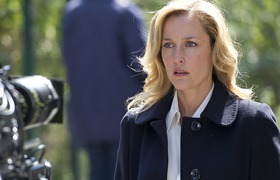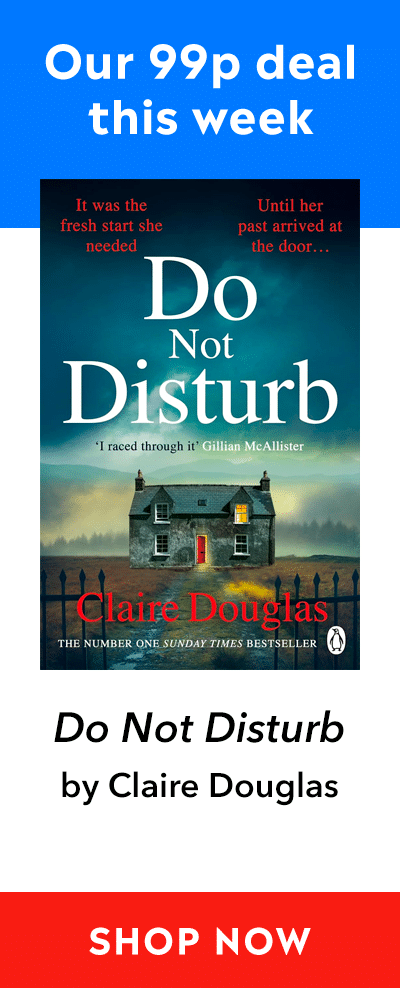Features
Getting Over the Barricades: Belfast and The Fall
Belfast and The Fall
By Stuart Neville
A fellow writer once said to me: ‘The two most boring words in the English language are Northern Ireland.’ Another once told me that one of his novels saw a marked drop in sales because it featured the word ‘Belfast’ in the title. My own debut novel was retitled from The Ghosts of Belfast to The Twelve because Northern Ireland as a setting for fiction was perceived as such a hard sell, nowhere more so than in Northern Ireland itself. This ‘Cultural Cringe’ is not unique to Northern Ireland – that phrase is of Australian origin – but it has held back fiction from the region for decades, with the shadow of the Troubles touching every story we try to tell.
It was a most pleasant surprise, then, that the BBC2 crime drama The Fall was such a success when it was aired in early summer 2013. Its first episode pulled in 3.5 million viewers, the channel’s highest number for a new drama in eight years, and subsequent episodes went on to top 4.25 million, a triumph by any measure. The star-power of Gillian Anderson in the lead role of DSI Stella Gibson clearly didn’t hurt, but only great storytelling can sustain and grow an audience of that size, particularly when its Belfast setting has proven such a hurdle to writers and television producers in the past.
So has The Fall broken through the cultural barriers that have restricted Northern Irish fiction in the past? The path had been cleared somewhat by other movies and books in recent years. In the last twelve months alone, we’ve seen some notable successes.
Last year’s Shadow Dancer, based on a novel by Tom Bradby and directed by James Marsh (Man on Wire, Project Nim) is an unusually clear-eyed story about the murky overlap between the security services and paramilitaries. Unfairly, it did unspectacular business at the box office, despite being the best Troubles thriller since Neil Jordan’s The Crying Game became a sleeper hit twenty years earlier. Admittedly, it’s not a strong field when one considers the competition is made up of the likes of the dire Brad Pitt/Harrison Ford vehicle The Devil’s Own, but Shadow Dancer is well worth seeking out.
In more recent months, a biopic of legendary Belfast impresario Terri Hooley named after his record shop, Good Vibrations, delighted audiences in Northern Ireland and abroad. For many, Good Vibrations is seen as the best movie ever made about the Troubles because it’s not about the Troubles, but rather the struggle of ordinary people to live their lives and pursue their dreams in spite of the backdrop of sectarian conflict.
In the crime fiction world, the extraordinary success of Brian McGilloway’s novel Little Girl Lost, with sales of over 200,000 ebooks, has proved that a Northern Ireland setting need not be a hindrance to storytellers. A good crime novel is a good crime novel, and Little Girl Lost proves that the politics that inevitably come with policing this part of the world don’t have to bog the story down.
So The Fall might have had some forerunners over the last year, but its ratings blitzkrieg is entirely down to the writing of Alan Cubitt, the performances of its stars, and the skills of its crew. But given past resistance to Belfast settings, did the producers face difficulties in getting it made? Although the story touches on topics unique to Northern Ireland, and the menace of paramilitarism is never far away, can that baggage be turned to the story’s advantage? One of the producers I spoke to certainly believes so.
I was told: ‘For The Fall, the setting was perfect. The writer had researched real killers, and many were from small towns and cities in America that have a certain intimacy. Belfast was perfect for that. People liked that the show had a sense of place, rather than some neutral setting.’ The producer also felt that a broadening in the world of television crime drama helped: ‘Shows like The Killing, Spiral and The Bridge helped convince TV people that audiences are prepared to take risks.’
Are crime lovers ready to embrace Northern Ireland as a setting in the way they’ve embraced Scandinavia? Carrickfergus born author Adrian McKinty certainly thinks so: ‘I think the wheel may finally turning towards Northern Irish fiction. For years the words ‘The Troubles’, ‘Northern Ireland’ and ‘Belfast’ caused book buyers, programme makers and publishers to either shrug with indifference or shudder in horror; but the new generation of writers coming out of Belfast is so good that a previously reluctant audience has had their interest piqued.’
Next year, Akashic Books will publish Belfast Noir, edited by me and Adrian McKinty, as part of their City Noir series of anthologies. With that, my own Belfast-set series, and the work of writers like Colin Bateman, Eoin McNamee, and more, it’s clear that Northern Ireland has many more stories to tell. The Fall is just the start.
1 Comment
Join the discussion
Please note: Moderation is enabled and may delay your comment being posted. There is no need to resubmit your comment. By posting a comment you are agreeing to the website Terms of Use.


I totally agree with this article. For too often people have written about the Troubles and NI has become inextricably linked with them. I started to write two years ago and now have four crime novels set in NI 2012/2013 published in the DCI Craig series and I have done everything to avoid making the story lines about the Troubles and have tried hard to show NI as the moment European country that it is. In theory the stories could be transposed to any country or city by changing place names and countryside descriptions etc although the humour is definitely Northern Irish. I hope that they are just good detective stories that rise or fall on their own merit. It’s just a small thing but my personal preference would be that modern films/shows set in NI weren’t quite so violent, surely we can avoid the extremes of that?